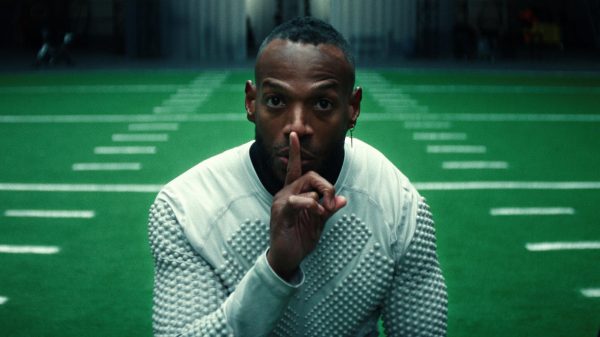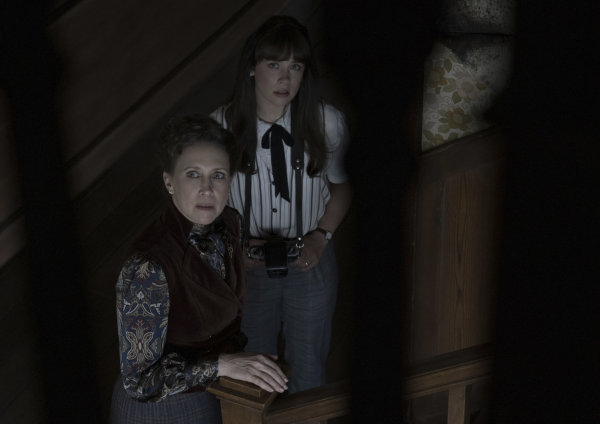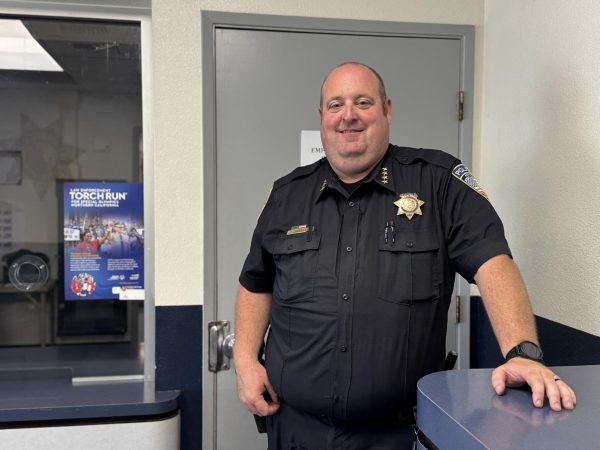Opinion: The Justice System Is Corrupt
A black man dies, the justice system closes their eyes.
People of color continue to suffer violent attacks and death at the hands of police officers. If you haven’t begun to believe that the system is corrupt yet, then why do cases with evidence on tape get dismissed?
George Floyd’s death in May sparked a nationwide resurgence in the Black Lives Matter (BLM) movement. People have continued to fill the streets and knock on capitol doors to abolish the systematic racism they claim plagues our country.
Of course, this is the United States, and we all hold the power of freedom of speech. So naturally there are those who disapprove and combat that the justice system is not systematically (according to a fixed plan or system; methodically) racist.
If that is the case, why was the police body camera footage in Floyd’s death only brought to light after riots ran the streets?
In July, transcripts of police body camera footage of the officers involved in Floyd’s case were released. As reported by Holly Bailey for the Washington Post, the transcripts revealed that “Floyd was trying to cooperate with police but was deathly afraid of them, at times telling them that he had had covid-19 and was worried that he was going to die because he couldn’t breathe while in their custody.”
Despite this, officer Derek Chauvin, the officer who pressed his knee into Floyd’s neck and is on trial for his death, told Floyd that he must be okay since he was using up oxygen to plead for help.
The transcripts further revealed Floyd saying, “They going to kill me, they’re going to kill me man.”
So, not only did the transcripts showcase Floyd crying for help and Chauvin’s apathy, but the video of the event was shared and broadcast across the country countless times. Yet somehow, Chauvin and the other officers were not taken into custody until after the riots began in Minneapolis when the crime was clearly documented on camera by multiple sources.
You’re supposed to be innocent until proven guilty, but these men are by definition proven guilty with the act caught on tape. However, the definition of guilt in accordance to law itself sheds some light as to how they are protected when guilty.
The definition of guilt in law reads,“In criminal law, guilt is the state of being responsible for the commission of an offense. Legal guilt is entirely externally defined by the state, or more generally a court of law.”
According to that definition, the state of being guilty is defined by the state and/or court of law. In the ongoing argument on whether the system is corrupt and racist, guiltiness being defined by the system does not bode well.
Not to mention, Chauvin was released from jail on a $1 million bond October 7th. Following his release, on the 9th it was ruled that Chauvin is allowed to live in Minnesota or a neighboring state because of safety concerns following his release.
So, the same state that determines whether or not he is guilty of manslaughter documented on camera is the same state that allowed his bail and further protection. It’s growing increasingly harder to deny the protection of police officers, specifically white, and the racism that stems from the core of the system towards non-white Americans.
This does not only apply to the case of George Floyd either, it is a perpetual issue.
Two years ago, USA Today published the article “When videotaping cops isn’t enough, what’s next?” The article by Daniel Payne disclosed that in 2017 alone, close to 1,000 people were shot and killed by police. It further reveals that “during a 12-year period ending in 2017, only 80 officers had been charged with murder or manslaughter in connection with deadly force cases, and less than half of those officers were convicted.”
That information speaks volumes for the corruption and favoritism towards police officers, but the next piece of information detailed by Payne speaks even louder about the state of Minnesota.
Sadly, Floyd’s death is not the only police misconduct related death to happen in Minnesota in recent years. Payne’s article reads, “The Minnesota police officer, for example, who shot and killed Philando Castile — a black cafeteria worker known for his kindness — at a traffic stop in a Twin Cities suburb was acquitted of second-degree manslaughter. The officer shot Castile, a valid concealed-carry gun permit holder, within seconds of instructing Castile to get his license and show proof of insurance.”
It seems that police have an issue with killing minority Americans on the clock, but the justice system has a considerably worse problem of letting them get away with it.
This is not to say that every police officer or justice system worker is bad, but it does heavily imply that the systematic racism that BLM supports claims we have in this country is real. Why else would guilty people who clearly committed murders on record get away untouched?
The answer lies in the facts and evidence, and the evidence shows that the justice system historically protects the police officers who wrongfully killed innocent citizens.
The system is corrupt.




